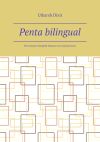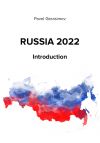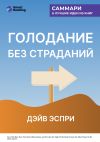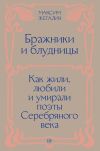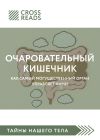Текст книги "Английский язык. Учебно-методическое пособие к практическим занятиям для биологов бакалавриата и магистратуры"

Автор книги: Шолпан Гумарова
Жанр: Зарубежная образовательная литература, Наука и Образование
сообщить о неприемлемом содержимом
Текущая страница: 2 (всего у книги 8 страниц) [доступный отрывок для чтения: 2 страниц]
UNIT IV
New words and expressions:
degradation – деградация
severe – суровый
cease – прекращать
adapt – приспосабливать
spawn – метать икру
feed – кормить, питаться
hinder – мешать
access – доступ
abandon – оставлять
suffer – страдать, испытывать
damage – повреждать
disaster – бедствие
decline – понижение
pasture – пастбище, подножный корм
affect – действовать, влиять
inedible – несъедобный
vegetation – растительность
graze – пастись
plateau – плато, плоскогорье
implicate – вовлекать
respiratory – дыхательный
digestive – пищеварительный
inhalation – вдыхание
ingestion – глотание
hygienic – гигиенический
drainage – сток
treatment – обработка
pesticide – пестицид
fertilizer – удобрение
contaminate – загрязнять, заражать
morbid – болезненный, патологический
constrained – принужденный
affliction – огорчение
morbidity – патология
Read the international words and give their Russian equivalents:
degradation, commercial, adapt, condition, area, navigation, kilometre, stop, port, major, limit, region, population, million, ecological, zone, serious, delta, reduction, associate, agriculture, practice, system, productivity, natural, vegetation, plateau, respiratory, variety, medical, hygienic, drainage, canal, minimal, critical, problem, pesticide, incedent, factor, diet, general, infant.
Environmental, Economic and Human Consequences
The environmental, economic and human degradation from the Aral Sea's desiccation have been wide-ranging and severe. Commercial fishing ceased in the early 1980s as native species, unable to adapt to rapidly changing conditions (chiefly rising salinity and loss of spawning and feeding areas), disappeared and the shoreline receded ten of kilometers from fishing towns and villages, hindering access to the sea by fishing boats. Commercial navigation across the Aral Sea also stopped as efforts to keep the increasingly long navigation channels open to the major port of Aralsk became too costly and difficult and were abandoned.
But damage has not been limited to the sea and settlements directly dependent on it. A region around the sea with a population in 1991 of nearly 4 mln has also suffered great damage and is considered an "ecological disaster zone". One of the most serious consequences has been the degradation of ecosystems in the Amu-Dar'ya and Syr-Dar'ya deltas owing to the huge reduction of flow through them and decline of groundwater levels in them associated with both reduced river discharge and the falling level of the Aral Sea.
Irrigated agriculture, practiced in the deltas of the Amu-Dar'ya and Syr-Dar'ya has been badly hurt by constrained water supplies resulting from greatly reduced river flow. Animal husbandry both in the deltas and in desert regions adjacent to the Aral Sea has been damaged by the diminishing productivity of pastures affected by desertification, dropping groundwater levels and replacement by inedible species of natural vegetation which is suitable for grazing.
Salt and dust blown from the increasingly large former sea bottom is carried as far as 500 km and settles over a considerable area adjacent to the Aral Sea. Natural vegetation and the crops in the Amu-Dar'ya delta to the South of the sea and pastures in the Ust-Yurt plateau to the West of the Aral Sea are suffering the most damage. Blowing salt and dust is also being implicated in increasingly high levels of respiratory illnesses, and even with throat and esophageal cancer.
The population of the area adjacent to the Aral Sea suffers a variety of health problems. Some of these are directly linked to the sea's recession e. g. respiratory and digestive afflictions, possibly even cancer, from inhalation and ingestion of blowing salt and dust, whereas others are results of environmental pollution associated with irrigation and "Third World" medical, health and hygienic conditions. Poor quality drinking water – much of which is taken directly from the Amu-Dar'ya and Syr-Dar'ya whose flow in their lower reaches is largely comprised of irrigation drainage, and from irrigation canals with minimal or no treatment – is a critical problem. Commonly, such water has high salt levels and contains pesticides, defoliants and fertilizers. Contaminated drinking water is implicated in high rates of typhoid, paratyphoid, viral hepatitis and dysentery, the incidents of which grew in the 1970s and 1980s. Because of this and other factors (e. g. high fertility, poor medical care, poor diet and lack of sewage systems) general mortality and morbidity and infant mortality and morbidity are the highest in the region constituting the former USSR.
EXERCISES:
1. State to what part of speech the following words belong according to their suffixes and translate them into Russian:
environmental, economic, degradation, commercial, rapidly, condition, chiefly, salinity, navigation, increasingly, costly, settlement, population, ecological, serious, consequence, reduction, agriculture, husbandry, region, adjacent, productivity, pasture, desertification, replacement, inedible, natural, vegetation, considerable, respiratory, variety, directly, recession, affliction, possibly, inhalation, ingestion, pollution, irrigation, hygienic, quality, largely, drainage, minimal, commonly, factor, general, mortality, morbidity.
2. Find in the text the English equivalents for the following words and word-combinations:
быстро меняющиеся условия, исчезать, ущерб, поселок, зависеть, население, серьезные последствие, животноводство, заболевания дыхательных путей, примыкающий к морю район, загрязнение окружающей среды, орошение, плохое качество питьевой воды, минимальная обработка, вода содержит пестициды и дефолианты, зараженная питьевая вода, плохое питание, высокая рождаемость, общая смертность.
3. Make questions of the following statements. Begin each question with the words given in brackets:
1. The population in the area adjacent to the Aral Sea suffers a variety of health problems. (What problems..?)
2. Some of the health problems are linked to the sea's recession. (What…to?)
3. Poor quality drinking water is a critical problem. (What..?)
4. Such water has high salt levels. (What salt levels..?)
5. The Aral Sea water contains pesticides, defoliants, fertilizers. (What..?)
4. Make the following sentences negative:
1. Commercial fishing ceased in the 1980s.
2. The shoreline receded tens of kilometers from fishing towns and villages.
3. Commercial navigation across the Aral Sea stopped.
4. Animal husbandry has been damaged by the diminishing productivity of pastures.
5. Natural vegetation and crops are suffering the most damage.
6. Health problems are the results of environmental pollution.
7. General mortality and morbidity are the highest in the region.
5. Answer the questions:
1. Why did commercial fishing cease in the Aral Sea?
2. Why did commercial navigation stop?
3. Why is the region around the sea considered as "ecological disaster zone"?
4. Why was animal husbandry damaged?
5. What is the reason of high levels of respiratory illnesses?
6. What does the population of the area suffer?
7. What is the reason of the poor quality drinking water?
8. What does the drinking water contain?
9. What is the result of poor medical care, poor diet and lack of sewage system?
UNIT V
New words and expressions:
issue (n, v) – вопрос, выпускать
implementation – выполнение
ensure – обеспечивать
supply (n,v) – снабжение, снабжать,
at least – по крайней мере
release – выпускать
cope – справляться
improve – улучшать
diversify – разнообразить
emphasis – ударение
means – средство
local – местный
care – забота, попечение , уход
delivery – доставка
as well as – также, тоже
total – итог, сумма, общий, полный
estimate – оценивать
recession – спад
halt – останавливать
gradually – постепенно
restoration – восстановление
endemic – эндемический
species – виды
tolerant – терпимый
valuable – ценный
flourish – процветать
assume – принимать
rehabilitate – восстанавливать
however – однако, тем не менее
scheme – проект, замысел
scope – пределы, простор, размах
alter – переделывать, изменять
approach – приближение, подход, подступ, приближаться
basin – бассейн
provision – снабжение, обеспечение
oblige – обязывать, заставлять
resolve – решать
effort – усилие
contribution – вклад
observer – наблюдатель
alleviate – облегчать
involve – вовлекать
evaluation – оценка
deflation – спуск
Read the international words and give their Russian equivalents:
rehabilitation, public, pressure, central, decree, order, program, medical, service, region, ecological, condition, irrigation, system, guarantee, concept, crisis, commission, expert, economy, agriculture, production, manufacture, local, standard, stabilize, limit, total, billion, endemic, commercial, ocean, formulate, assistance, plan, credit, infrastructure, management, fund.
Rehabilitation Efforts
Since 1986 the Aral Sea problem has become a major public issue in the former USSR. Under considerable public pressure, the former Central Government of the Soviet Union issued a decree on the Aral Sea in September 1988. It ordered development and implementation of a program to improve medical and health services in the region around the Aral Sea, ensure safe drinking water supplies, improve ecological conditions in the deltas of the Amu-Dar'ya and Syr-Dar'ya, rebuild and raise the efficiency of irrigation systems and guarantee the delivery of at least 21 cubic kilometers of water per year to the Aral Sea by 2005.
In February 1991, the State Commission on the Aral Sea released a concept for coping with the crisis, developed by an "expert working group". It proposed a broad program intended to a) improve land and water use;
b) diversify the economy in the Aral Sea region with less emphasis on irrigated agriculture and cotton production and light manufacturing as means of reducing water use, increasing local food supplies and improving living standards;
c) improve health and medical care and;
d) ensure delivery of much more water to the Aral Sea as well as stabilizing the dried bottom to limit deflation of salt and dust.
The program was to be implemented in 3 stages: 1991-1995, 1996-2000 and 2001-2010. Total cost was estimated as nearly 60 billion (1990) rubles. The recession of the Aral Sea would first be halted and then its level gradually raised and stabilized at 40-41 m by 2010. Restoration of such a level would reconnect the small sea in the North and the large sea in the South into one water body. Also, even though the salinity would be too high for restoration of endemic fresh water species, more salt tolerant, commercially valuable species from the Black Sea, Mediterranean, or open ocean could be introduced. Past experience indicates that some of these new inhabitants would flourish and assuming the Aral Sea did not become polluted, the fishery could be rehabilitated. However, the cost of the scheme is daunting and the period of implementation, considering its scope, short.
The break-up of the USSR at the end of 1991 altered the approach to the Aral Sea problem. The five newly independent states of the Aral Sea basin have taken full control of natural resources located on their territories. All the Aral Sea basin states are members of the Commonwealth of Independent States (CIS). The CIS declared the Aral Sea problem, along with Chernobyl, an "all Commonwealth concern". In May 1992 the presidents of the CIS, meeting in Tashkent, signed an agreement on the Aral Sea which includes provisions for financing research and improvement efforts.
An important step was taken in February 1992 with the signing by all basin states of an agreement on the joint management and protection of interstate resources. The agreement obliges the republics to work jointly to resolve ecological problems connected with the desiccation of the Aral Sea.
In May 1992, the five republics, along with other members of the CIS, signed a ten-year agreement on cooperative efforts to improve the region's situation. An intergovernmental Aral Committee and Aral fund, which would receive contributions from all CIS members, were also created. Another agreement was signed in March 1993. It established an Interstate Council for the Aral Sea Basin Crisis with membership for all basin states and observer status for Russia.
The Aral Sea Basin states have asked international organizations to provide aid for alleviating their problem. The World Bank has become involved, it sent an evaluation team to the region in September 1992. In March 1993 the World Bank agreed to formulate and implement an Aral Sea Environment Assistance Plan. To be implemented over 10 years, the plan is estimated to cost US $ 50 mln in loans, grants and credits, and is aimed at health and medical care infrastructure development, improving the water management and stabilizing the Aral Sea.
EXERCISES:
1. Give derivatives of the following words and translate them:
implement, environment, assist, estimate, aim, health, medical, develop, improve, manage, stable, pollute, fish, consider, nature, local, declare, sign, agree, provide, important, protect, resolve, ecology, connect, region, situate, govern, contribute, create, establish, observer, nation, organize, value, press, form, center.
2. Find in the text the Russian equivalents for the following words and word-combinations:
общественное давление, улучшать экологические условия, повысить эффективность оросительных систем, предложить программу, землепользование, орошаемое земледелие, производство хлопка, легкая промышленность, улучшение жизненного уровня, выполнять, общая стоимость, оценивать, останавливать, восстановление, опыт прошлых лет, процветать, загрязнять, независимые государства, взять полный контроль над природными ресурсами, Содружество Независимых Государств, подписать соглашение, решить экологические проблемы, совместные усилия, создавать, учредить, статус наблюдателя, вовлекать, обеспечить помощь, заем, кредит
3. Copy out of each paragraph the sentences containing the most important information.
4. Read the text again and write a brief summary of it.
5. Make up a plan of the text.
UNIT VI
New words and expressions:
concerted – согласованный
alleviate – облегчать
beset – осаждать
adequate – адекватный, достаточный
implementation – выполнение
priority – приоритет
dike – насыпь, ров
trap – капкан, ловить
frequency – частота
expanse – пространство
feasible – осуществимый, возможный
consolidate – укреплять
loose – свободный, рыхлый
hence – отсюда, с этих пор. следовательно
restore – восстанавливать
revive – возрождать
reasonably – разумно, основательно
assume – принимать, предполагать
original – оригинальный, первоначальный, подлинный
remain – оставаться
maintain – поддерживать
competitor – конкурент
indigenous – туземный, местный
Read the international words and give their Russian equivalents:
chief, resources, storm, chemicals, consolidate, material, situation, practical, condition, zone, optimal, argument, original, flora, fauna, type, select, cooperative, state, national, community, critical, problem, region, adequate, population, result, reconstruction, irrigation, priority, decade
The Future of the Aral Sea
With a concerted and cooperative effort among the Aral Sea Basin States and the real help from Russia and the international community, there is hope to alleviate, at least partially, the most critical problems that beset the Aral Sea region. The key issues of health and medical improvement, providing an adequate supply of clean drinking water and implementation of measures to bring down population growth should be started immediately and could show major results within a decade. Reconstruction of irrigation systems to save water is also a priority, but will take decades to implement fully.
Efforts to preserve the delta of the Amu-Dar'ya are important because of its ecological and economic value. One proposal is to construct a low dike or dikes on the dried bottom in front of and around the delta to reflood former gulfs and raise ground water levels, partially restoring its former ecological character; improving agriculture, fisheries and trapping: and providing a barrier to salt, sand and dust blowing from the dried bottom of the Aral Sea.
Reducing the frequency and severity of salt and dust storms is also a priority. This could be accomplished by stabilization of the large expanses of saline former bottom along the northeastern and eastern shoreline of the sea which are the chief sources of such storms. The most feasible means for stabilization is planting of salt-tolerant vegetation (e.g. black saksaul) and application of chemicals to consolidate the loose surface material.
Partial restoration of the small sea is also feasible. Naturally separated from the large sea in 1987 its level could be raised with relatively small increases of inflow, compared to the situation for the large sea, since its surface area, and hence evaporation losses, are much smaller.
To restore the entire Aral Sea to its size would be a daunting task.
Practical consideration may dictate that even under the best of future circumstances, the Aral Sea can only partially be revived. Assuming the discharge to the sea were reasonably clean, endemic flora and fauna could be reintroduced to the sea from lakes in the Amu-Dar'ya and Syr-Dar'ya delta where they still survive (or from other lakes with similar ecological conditions to the pre1960s Aral Sea, such as Balkhash). They would probably do well in the freshened zones around the mouth of the Amu-Dar'ya and Syr-Dar'ya, even though the salinity in the open sea would be above the optimal for them. This is a powerful argument for making efforts to preserve what remains of the original flora and fauna of the Aral Sea, either in deltaic lakes or in parts of the remaining sea in which habitat conditions of the pre-recession Aral Sea could be artificially maintained. More salt-tolerant types of fishes could also be introduced, as long as care was taken to select species that would not become major competitors to the indigenous varieties.
EXERCISES:
1. Form nouns from the following verbs and translate them into Russian:
plant, restore, separate, increase, implement, consider, revive, compare, situate, evaporate, select, dictate, argue, maintain, introduce, cooperate, state, result, reconstruct, irrigate, alleviate, issue, improve, provide, supply, measure, show, start, save, propose, trap, reduce, stabilize, mean.
2. Find in the text the English equivalents for the following words and word-combinations:
согласованные усилия, реальная помощь, международное сообщество, ключевой вопрос, чистая питьевая вода, снизить рост населения, немедленно, в течение десятилетия, оросительные системы, поднять уровень воды, рыбный промысел, пыльная буря, средство, частичное восстановление, эндемическая флора и фауна, искусственно поддерживать, конкурент.
3. Answer the following questions:
1. What are the most critical problems of the Aral Sea region?
2. Why is it important to preserve the delta of the Amu-Dar'ya?
3. Why is it necessary to reduce the frequency and severity of salt and dust storms?
4. What are the chief sources of the storms?
5. Can the entire Aral Sea be restored to its prerecession size?
6. Why should the endemic fauna and flora be reintroduced to the sea?
7. Why should salt-tolerant vegetation be planted in the Aral Sea region?
4. Copy out of each paragraph the sentences containing the most important information.
5. Express the main idea of the whole text in English.
UNIT VII
New words and expressions:
surround – окружать
accompany – сопровождать
owing to – из-за, по причине, вследствие
underestimate – недооценивать
confident – уверенный
benefit – польза, выгода
outweigh – перевешивать
harm – вред
experience – опыт
throe – муки, агония
reverse – изменять
rectify – исправлять
appeal – взывать, обращаться
proposal – предложение
caution – осторожность, предупреждение
disrupt – сорвать
cause – причинять, вызывать, заставлять
collapse – падение, крах, провал
Read the international words and give their Russian equivalents:
scale, negative, human, massive, planner, engineer, radical, result, experience, hydrological, period, process, correct, complex, management, collapse.
Conclusions
The Aral Sea and surrounding region has suffered large scale negative environmental change accompanied by major economic losses and human suffering over the past 4 decades owing to development of massive irrigation works. Soviet planners and engineers in 1950s, 1960s and 1970s underestimated both the range and severity of these consequences. They were confident that the socio-economic benefits of irrigation development outweigh any harm that might result.
What lesson can be learnt from the Aral Sea experience?
1) Once a large hydrological system such as the Aral Sea basin is in the throes of radical change, it is very difficult, costly and requires a lengthy period to reverse the process (i. e. it is much easier to create such problems than to rectify them).
2) Simplistic and, at first glance, appealing proposals to correct complex water management problems in the Aral Sea basin quickly (e. g. through rapid and massive cuts in irrigation to free water for the Aral Sea) should be approached with caution as they may so disrupt the economy as to cause its collapse.
From «Surviving Together» P.P.Micklin, Ph.D.
EXERCISES:
1. Find in the text the English equivalents for the following words and word-combinations:
большие экономические потери, за последние 4 десятилетия, переоценить, быть уверенным, социально-экономическая выгода, перевесить, с осторожностью.
2. Form verbs from the following nouns and translate them into
Russian:
change, loss, suffering, development, irrigation, work, planner, weight, result, creation, appeal, proposal, correction, management, cut, freedom, approach, cause.
3. Translate this text in written form.
4. Make up 10 questions connected with the Aral Sea problem.
5. Use the following suggested topics for discussion:
1. Environmental consequences of the Aral Sea recession.
2. Economic consequences of the Aral Sea recession.
3. Future of the Aral Sea.
4. My specialty – applied ecology.
6. Read the texts again and make a report about the Aral Sea problem.
Внимание! Это не конец книги.
Если начало книги вам понравилось, то полную версию можно приобрести у нашего партнёра - распространителя легального контента. Поддержите автора!